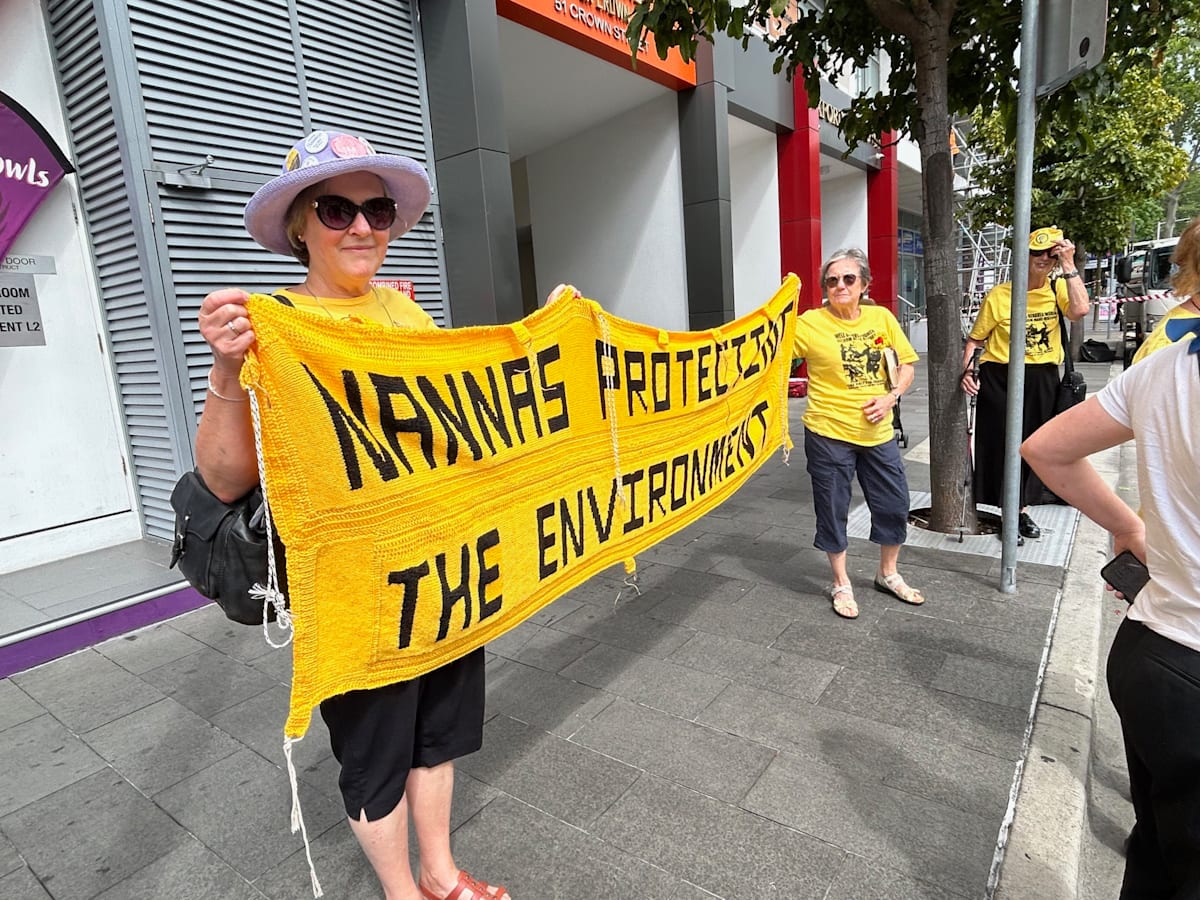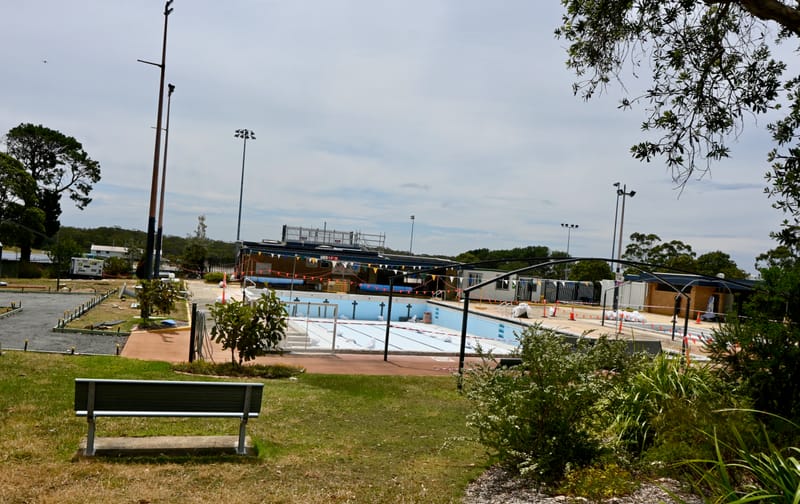Protestors say fast-tracked new planning laws favour developers not environment
About 30 people took to the street outside Minister Paul Scully's Crown Street office on Monday morning to protest changes to the state's planning laws. One of the organisers from the Illawarra Knitting Nannas Against Greed, Anne Kelly, told the...
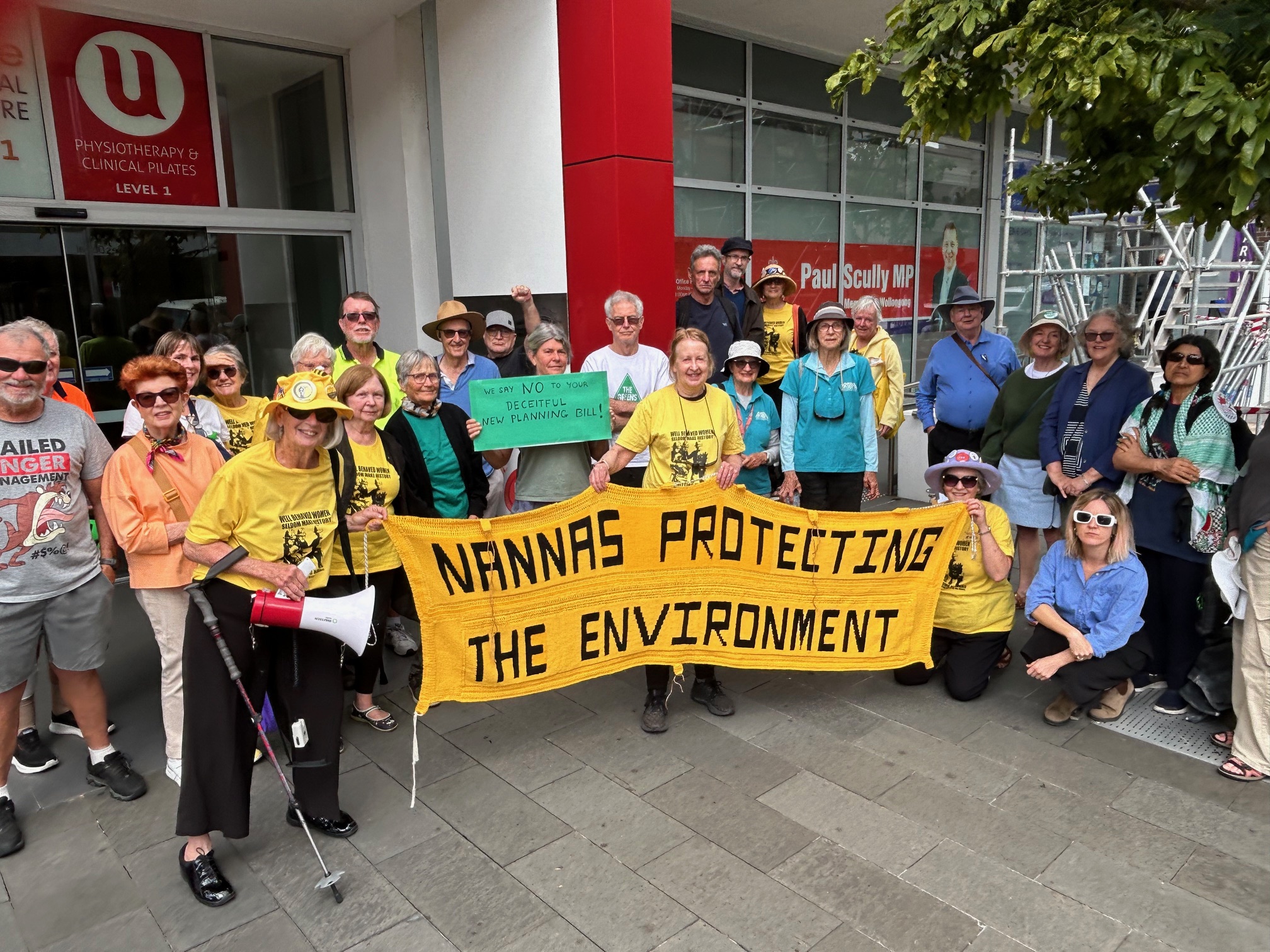
About 30 people took to the street outside the Crown Street office of Wollongong MP Paul Scully, the Minister for Planning and Public Spaces, on Monday morning to protest against changes to the state's planning laws.
One of the organisers from the Illawarra Knitting Nannas Against Greed (IKNAG), Anne Kelly, told the crowd the government was radically changing the planning laws under the guise of fast-tracking housing to address the current housing crisis.
But Anne said the impact would go well beyond this, which could result in environmental assessments not being required for coal and other mining projects.
"The Bill gives the Minister the power to declare a development eligible for a 'targeted development assessment' process, meaning no consideration of the public interest," Anne said.
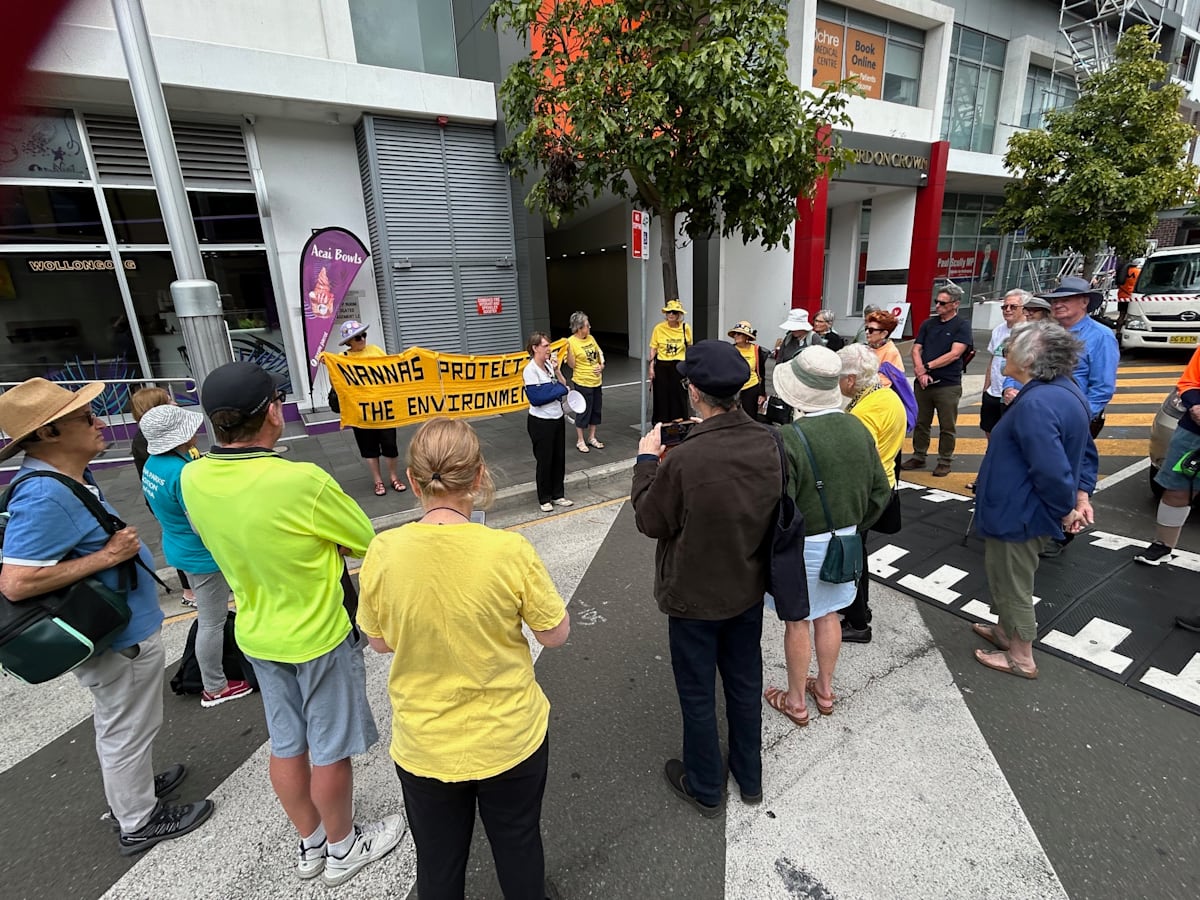
'Horrified' by what's proposed
Emma Rooksby, a member of the Australian Conservation Foundation, said she was "horrified" at the changes being proposed when she read advice from the Environmental Defenders Office (EDO).
That advice says, "significant changes proposed for all development assessment in NSW risk increasing environmental, community impacts and corruption risks".
"Concerningly, the Bill reorients the planning system to simply promoting development away from the wellbeing of the community and the environment in decision-making," the EDO advice says.
Emma said while she agreed "we need more affordable housing for everyone, this Bill shifts an emphasis from the environment to the developer".

Concern over lack of consultation
Emma said the NSW Planning System Reforms Bill 2025 appeared to be being rushed through with no public consultation and scrutiny.
Attendees at the protest signed a letter to Minister Scully "to express our concerns regarding the Bill, and the speed with which it is expected to be put through both Houses of Parliament this year. The Bill has been described as 'sweeping' and 'radical' but has not been referred to a multi-party committee. While the premise of this Bill is to cut red tape to speed up much needed residential development, we are worried that there may be a number of unforeseen consequences that could impact the environment and the NSW community."
Minister Scully's department has described the "landmark legislation" as being "designed to make the planning system quicker and simpler to navigate, so that more homes and jobs can be delivered across the state".
According to NSW Planning: "Every decision made about new and existing development is determined by the EP&A Act [Environmental Planning and Assessment Act 1979], but after nearly 50 years, it has become overly complex and ill-equipped to meet modern challenges.
"Over time, the planning system has become a barrier preventing the delivery of much needed homes by slowing decision-making and delaying construction. The level of assessment required for simple developments is disproportionate to their impact on communities – in short, we are sweating the small stuff."
Minister Scully said: "Housing is the number one issue for the people of NSW. We need legislative reform … This is about making sure the planning system works for the people of NSW."
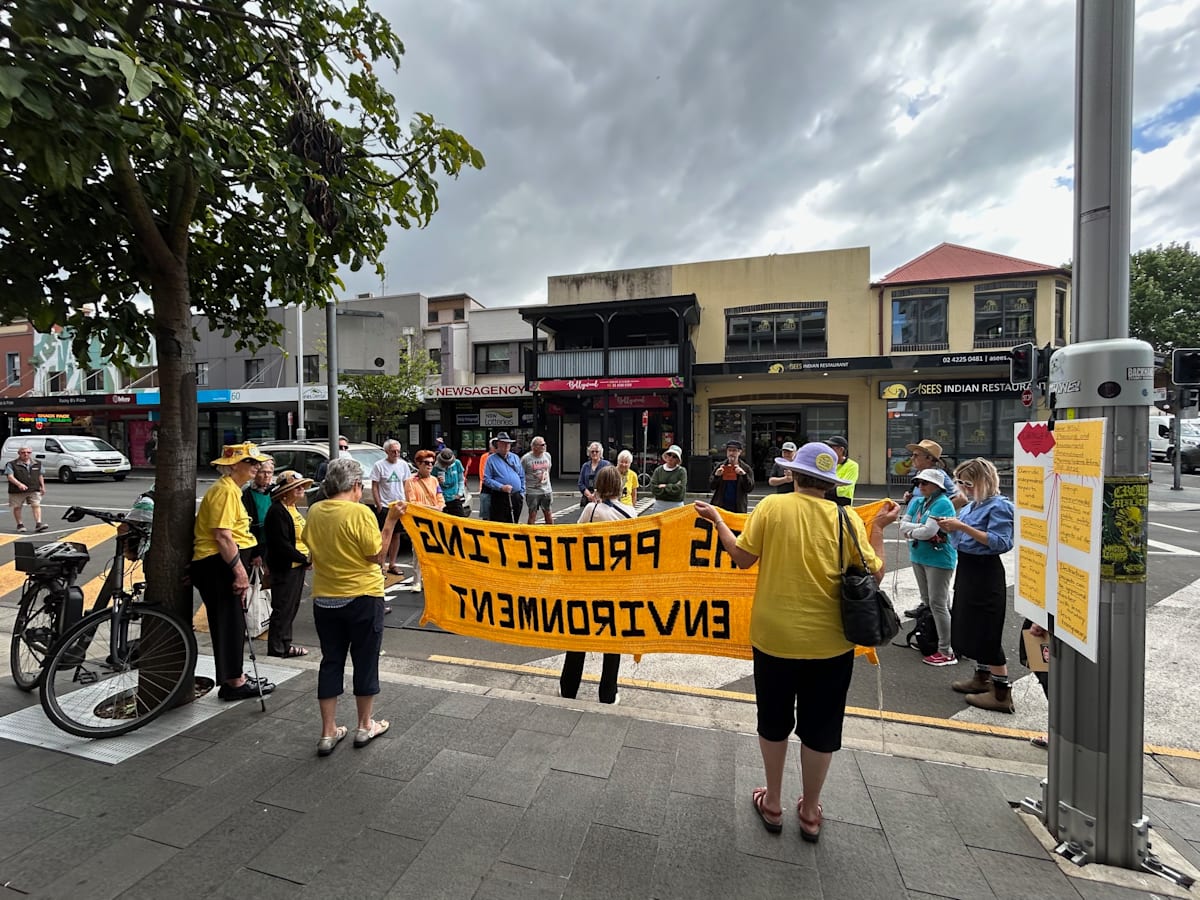
Current Act works well
Emma Rooksby said the current Act, which was created by a Labor Government, had served the community well for decades.
"It's an Act that does a job balancing development where it's needed with the public good," Emma said.
Today's protest called on Minister Scully to send the new Bill to a multi-party Committee to allow proper scrutiny of its impacts, particularly in relation to environmental protection, community consultation and expert scientific input.
They also called on the Minister to delay voting on the Bill until next year to allow the community more time to understand it, and to either withdraw or drastically amend the Bill by, for example, applying current assessment processes to mining, to curtail its negative impacts.
